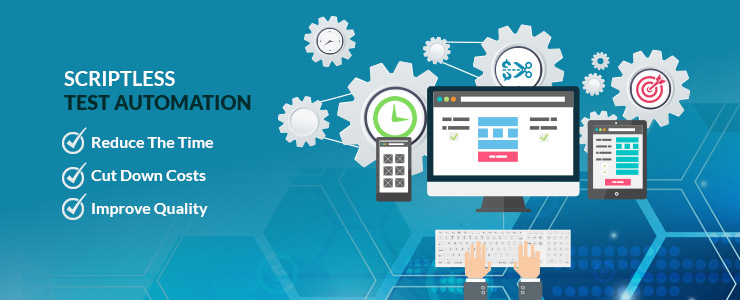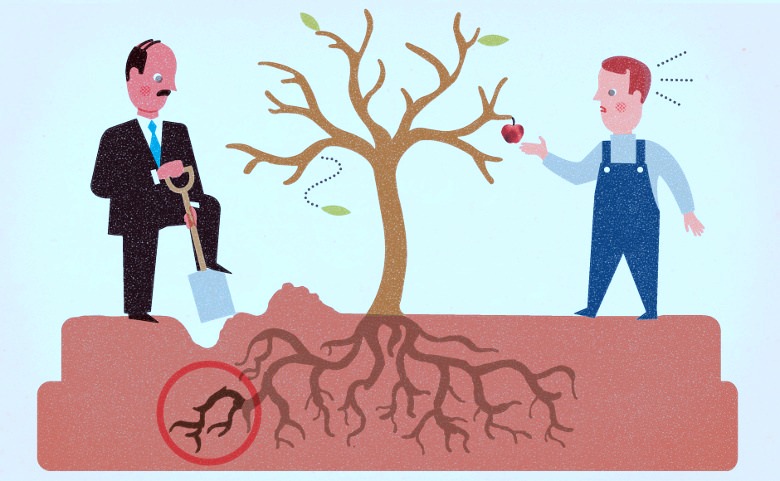
In 2024, cloud-based applications are at the forefront of digital transformation. Businesses are increasingly dependent on scalable, flexible cloud solutions to drive innovation and growth. With this shift comes the need for a robust testing strategy that keeps pace with the dynamic cloud environment.
AI has now become the cornerstone of cloud-based application testing. The integration of machine learning (ML) algorithms and artificial intelligence (AI) tools has automated many processes, improved accuracy, and accelerated the testing lifecycle. This article discusses how AI is changing cloud-based testing and why testing transformation is vital for all companies aiming to remain competitive.
In this guide, we will explore everything from how testing cloud-based applications has evolved to the best AI-driven testing practices you can adopt in 2024. Whether you’re new to cloud-based testing or looking to optimize your existing strategy, this comprehensive guide will help you understand the importance of AI in modern testing environments.
What is Testing Cloud-Based Applications?
Cloud-based applications, unlike traditional on-premise applications, are hosted and run on cloud infrastructure. This requires a unique testing approach that considers multiple factors like scalability, security, integration, and performance across diverse environments.
Testing cloud-based applications involves validating the functionality, performance, and security of apps deployed in the cloud. With the increasing reliance on SaaS (Software as a Service) and PaaS (Platform as a Service), businesses must ensure that their applications run seamlessly in varied cloud environments. This includes testing on different operating systems, browsers, and devices to ensure consistent performance for users.
Challenges in Testing Cloud-Based Applications
- Scalability Testing – Ensuring the application can handle varying loads in different environments.
- Integration Testing – Verifying seamless integration with third-party applications and APIs.
- Security Testing – Identifying vulnerabilities that could affect user data in the cloud.
- Cross-Platform Compatibility – Ensuring the application performs well across different devices, browsers, and platforms.
- Performance Testing – Testing the application’s responsiveness, stability, and load-handling capacity.
With the advancement in AI, cloud-based testing has transformed dramatically, addressing these challenges more efficiently than traditional testing methods.
How AI is Transforming Testing Cloud-Based Applications
AI is revolutionizing how testing is conducted for cloud-based applications. The traditional, manual testing processes are not only time-consuming but also prone to errors. AI-driven tools are now making it easier to run multiple tests in parallel, analyze large sets of data, and optimize test cases.
1. AI-Powered Automation
AI-based tools can now generate test cases, automatically execute them, and analyze results with greater accuracy. This reduces human intervention and error rates significantly. The AI-driven automation framework can simulate real-world scenarios, test edge cases, and monitor application performance without the need for constant oversight.
2. Self-Learning Algorithms
One of the biggest benefits of AI in cloud-based testing is the use of self-learning algorithms. These algorithms can learn from past test cycles and predict potential issues before they arise. As a result, companies can proactively address bugs or vulnerabilities in their cloud applications, improving overall security and stability.
3. Smart Test Analytics
With cloud-based applications generating huge amounts of data, analyzing test results becomes a challenge. AI offers advanced analytics tools that can process large datasets, identify patterns, and make data-driven decisions. This allows for quicker, more accurate issue identification and faster resolution times.
4. AI for Regression Testing
For cloud applications that undergo frequent updates and changes, regression testing is crucial to ensure that new updates don’t break existing functionality. AI-driven regression testing ensures that even the smallest changes are tested efficiently, without affecting other parts of the application.
5. AI-Driven Performance Optimization
AI can monitor application performance in real-time, automatically adjusting resources such as bandwidth and storage, to optimize performance during peak usage times. This helps maintain consistent user experiences, regardless of load or location.
By incorporating AI into cloud-based application testing, companies can stay ahead of the curve in 2024. The combination of scalability, speed, and accuracy that AI brings to testing allows for rapid deployment of high-quality cloud applications.
Why is Testing Transformation Necessary for 2024?
The rise of AI and cloud computing has led to significant changes in the software development lifecycle. Testing transformation is no longer a choice but a necessity for companies to stay competitive.
Businesses across all industries are adopting cloud-based applications to streamline operations, enhance customer experience, and reduce infrastructure costs. However, the complexity of these applications requires an advanced approach to testing that is scalable, flexible, and cost-effective.
AI-powered testing tools allow businesses to:
- Accelerate Time-to-Market – Automated testing enables faster releases with fewer bugs.
- Reduce Testing Costs – AI tools can automate redundant testing tasks, reducing the need for manual intervention.
- Improve Accuracy and Coverage – AI can simulate thousands of test scenarios that would be impossible with manual testing.
- Optimize Application Performance – AI-driven analytics offer real-time insights to optimize app performance and resource allocation.
Companies that fail to adopt AI-powered testing for cloud-based applications may face challenges in delivering high-quality software at speed, which could impact their competitive advantage in 2024 and beyond.
How to Implement AI-Powered Testing for Cloud-Based Applications
If you’re considering adopting AI for cloud-based application testing, follow these steps to get started:
1. Choose the Right AI Testing Tools
Evaluate AI-driven testing tools that fit your business needs. Some popular AI-powered cloud testing tools include:
- Testim – Uses machine learning to improve test stability and coverage.
- Mabl – Provides intelligent testing with self-healing scripts for cloud environments.
- Applitools – Specializes in AI-powered visual testing for cloud apps.
2. Automate Test Case Creation
Leverage AI tools to automatically generate and prioritize test cases. This reduces the manual effort needed to create complex test cases, especially in cloud environments where variables are constantly changing.
3. Use AI for Predictive Analysis
Use AI-powered analytics to predict potential failures and security vulnerabilities in your cloud application. By proactively addressing these issues, you can ensure more stable releases.
4. Continuous Testing
Integrate AI into your continuous testing pipeline to automate testing at every stage of the software development lifecycle. This enables faster releases with fewer bugs, even in complex cloud environments.
5. Monitor Application Health
AI-driven performance monitoring tools provide real-time insights into your cloud-based application, allowing you to detect and resolve issues before they impact end users.
Conclusion
In 2024, the integration of AI into cloud-based application testing is not just a trend but a necessity for businesses aiming for rapid, high-quality releases. The shift towards testing cloud-based applications with AI has enabled more efficient, accurate, and scalable testing processes.
AI’s ability to automate test case generation, perform real-time analytics, and optimize application performance is a game-changer for companies looking to reduce costs, accelerate time-to-market, and deliver flawless cloud applications. For businesses, this means maintaining a competitive edge in the fast-paced digital world.
As you move forward, consider adopting AI-powered tools for testing cloud-based applications. With the right approach, your company can not only transform its testing strategy but also optimize the entire software development lifecycle.
More Related Blog

Script-less Test Automation – Really Script-less?
Script-less automation, this term is most popular nowadays in the world of test Automation. The companies who have such script-less automation tools / frameworks promote that it allows the business users to comfortably automate the ...
Read More
Root Cause Analysis extremely important in 2019
When developing a product, while it is extremely difficult to maintain quality of the product due to its complexity and shorter time to market, it is also important to keep the cost low to stay competitive.It becomes essential for the … Continue reading "Root Cause Analysis extremely important in 2019"...
Read More
Should I test for my Cloud based Applications?
Down the years, the IT industry has been at the center of a virtual evolution in the form of cloud computing. In the cloud computing model, everything is viewed “As a Service.” The main motto of this technology is resource … Continue reading "Should I test for my Cloud based Applications?"...
Read More